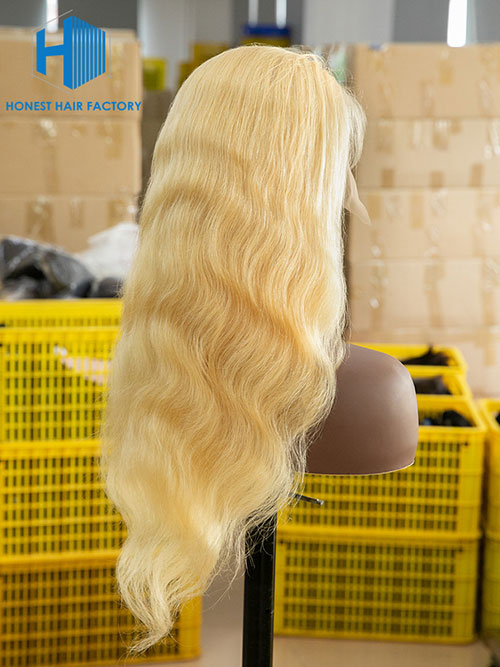The use of human hair in wigs and hair extensions has become big business in recent years. As more women seek alternatives to their natural hair through the use of hairpieces, vendors who supply wholesale human hair products have emerged to meet growing demand. However, it is important for any business operating in this industry to consider key ethical and environmental concerns.
One company promoting itself as a source for wholesale full lace wigs is Honest Hair Factory (HHF) in China. On their website, HHF markets themselves as a leading hair vendor with the "finest full lace wigs wholesale at the lowest cost." They claim to offer "quality and dependable drop delivery service" to help customers efficiently start their own hair businesses. Specifically, HHF indicates they can be a source for wholesale 613 blonde full lace wigs and business partner.
While low pricing and efficient delivery are attractive business factors, there are important questions surrounding the sourcing and production of human hair products that any wholesale vendor should be transparent about. Consumers are increasingly interested in understanding the sustainability and ethics of how cosmetic products like wigs are made. As hair demand rises globally, pressure on suppliers also increases to ensure high ethical standards are maintained throughout the supply chain. hair used in wigs and extensions is often sourced from places like India and China where women shave or cut their hair to sell for income. However, concerns have been raised about whether women fully understand where their hair will end up and if they are being fairly compensated. Reports suggest some women only receive a small fraction of what vendors charge wholesalers. Fair compensation rates and obtaining clear consent should be priorities for ethical hair sourcing.
Environmental impacts must also be considered. Large-scale hair collection and processing can put strain on local water supplies if wastewater is not properly treated before release. Chemicals used during production like dyes, bonding agents and preservatives also introduce pollutants if not handled responsibly. Sustainable practices like utilizing green chemistry techniques and renewable energy sources should be standard where human hair products are manufactured.
Accountability and traceability in the supply chain are additional factors for ethical wig production. Without proper documentation, it is impossible to verify that material was obtained freely and processed sustainably. Companies like HHF should be transparent about sourcing locations and production facilities to build trust with customers. Third-party certifications and random audits can further reinforce ethical and environmental commitments are being followed.
For customers wanting to start their own hair businesses through wholesale vendors, it is wise to scrutinize vendor claims of being "reliable" and having "quality" products. Due diligence is needed to ensure the hair supplier has implemented responsible practices throughout their operations and transparency regarding supply chain accountability. Markups charged by wholesalers should also be reasonable given manufacturer costs and efforts to compensate women suppliers fairly for their hair.
With human rights, environmental protection and business ethics top priorities for socially-conscious consumers, hair vendors need to demonstrate leadership on these issues to remain competitive. While low pricing through bulk wholesale orders is appealing, long-term business success depends on trust that full ethical standards have been met in hair sourcing, processing and distribution. Companies with authentic commitments to sustainability should be able to verify their responsible practices and supply chain accountability.


